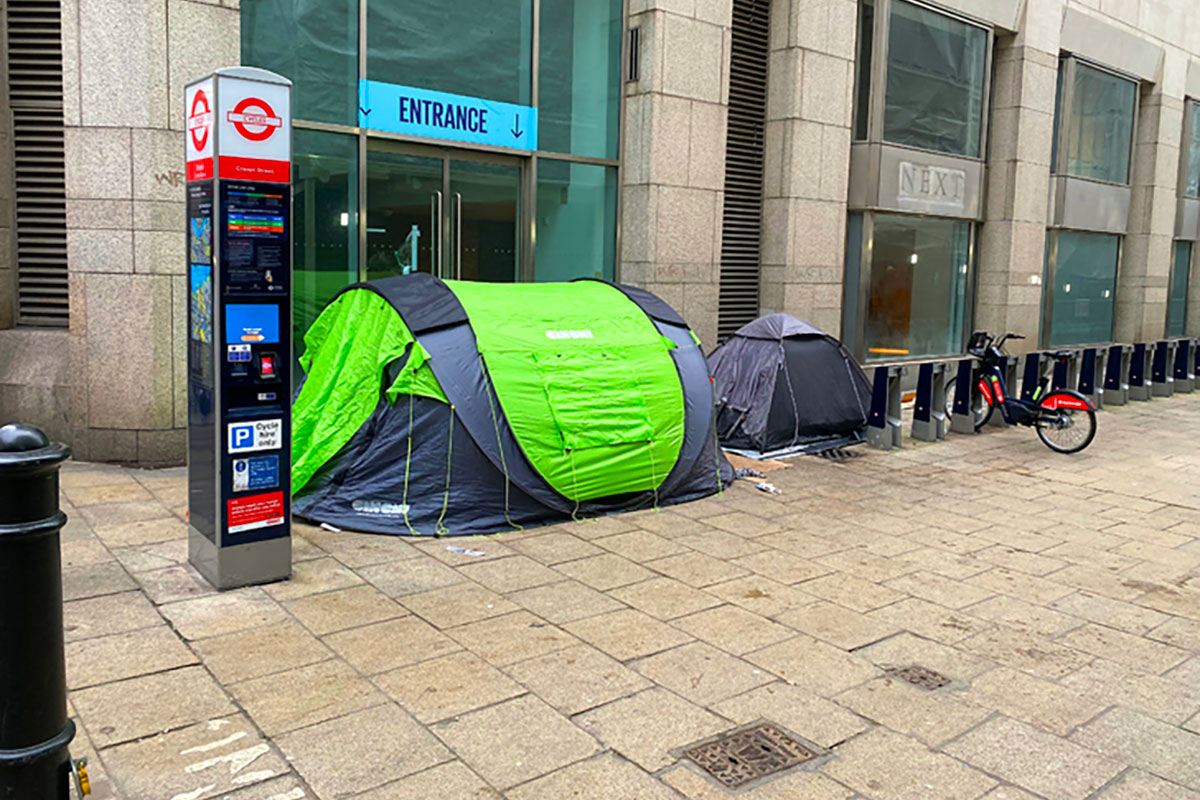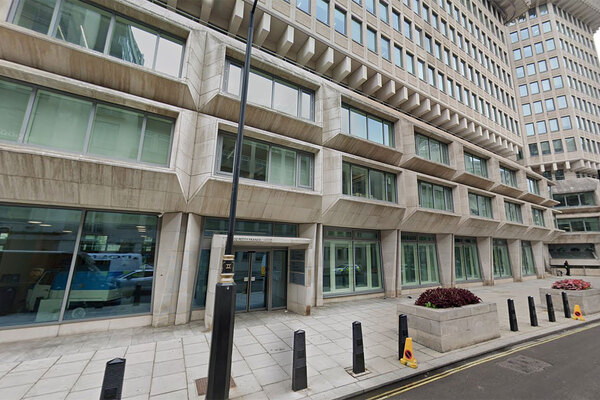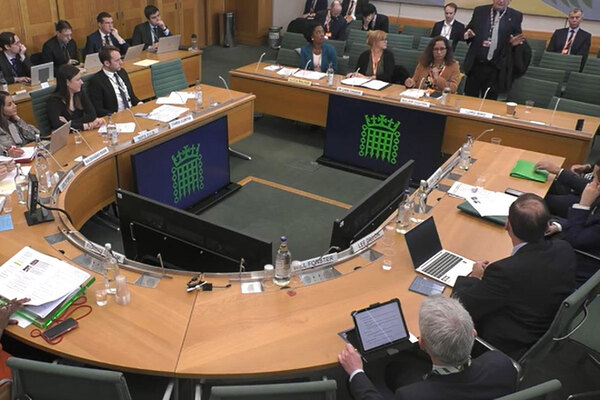You are viewing 1 of your 1 free articles

Gavin Smart is chief executive of the Chartered Institute of Housing
Why we need an evidence-based and compassionate approach to tackling homelessness
The former home secretary’s idea to ban tents used by rough sleepers seems to have been shelved. But the fact it was mooted has revealed the need for a real strategy to tackle homelessness, states Gavin Smart
Suella Braverman has lost her job as home secretary. One of her last acts was trying to push for legislation that would have restricted the use of tents by vulnerable homeless people. She also made comments about homelessness and rough sleeping being a “lifestyle choice”.
Though the policy appears to have been scrapped, and Ms Braverman has been replaced as home secretary, we still believe it is essential to talk about her proposal and comments as it revealed a lack of understanding of homelessness and the need to be led by evidence-based policy interventions.
Homelessness is increasing across the country. Local authorities counted 2,893 people sleeping rough on a single night in England in June 2023. Street homelessness has increased by 74% since 2010.
“The rising (un)affordability gap is a clear driver of homelessness, and we continue to call on the government to address it”
The Chartered Institute of Housing (CIH) and our partners from across the housing and homelessness sector came together to challenge the basis for such an approach and wrote an open letter urging the government to reconsider.
It was encouraging to see the proposals were not in the King’s Speech, but coverage of the issue suggests it has not gone away. We must keep making the case for an evidence-based and compassionate approach to homelessness prevention.
Homelessness (and the risk of it) is not a lifestyle choice, but an expression of system failure.
So, what does the evidence tell us?
Well first, homelessness is not a “lifestyle choice”, it is an expression of system failure, both in terms of housing supply and wider support. The Department for Levelling Up, Housing and Communities’ own commissioned research confirms this.
Forming policy solutions based on little or no evidence does not end well. If we are to properly address homelessness, we need policy solutions that are properly based on evidence.
As set out in our strategy for housing, we have an acute shortage of social rent homes. Housebuilding has failed to keep pace with demand for years, exacerbating the affordability and security challenges of both renting and owning.
“The former home secretary claimed that many of those sleeping rough are ‘from abroad’, but government figures tell us that 64% rough sleepers in England are British”
Those on the lowest incomes are particularly vulnerable. The Local Housing Allowance (LHA) is meant to ensure that people can access the cheapest 30% of local homes, supported by Universal Credit or legacy housing benefit. But LHA has been frozen at 2020 levels (based on rents in 2018-19), while private rents have risen to their highest recorded levels. As a result, we’re seeing an increase in homelessness and a marked increase in families living in ‘temporary’ accommodation.
Analysis by the CIH and Shelter revealed that last year fewer than one in five private rents in England were within LHA rates and that in every local area, LHA fails to cover the cost of the cheapest 30% of two-bedroom family homes. This rising (un)affordability gap is a clear driver of homelessness, and we continue to call on the government to address it.
Added to this, we are seeing rising levels of destitution. The Joseph Rowntree Foundation’s recent report showed that nearly three-quarters of people experiencing such poverty are in receipt of social security payments, highlighting benefit inadequacy and the need for an ‘Essentials Guarantee’.
Addressing the migrant angle
The former home secretary claimed that many of those sleeping rough are “from abroad”, but government figures tell us that 64% rough sleepers in England are British.
Foreign nationals are, however, more likely to be sleeping rough in London. They often end up street homeless because they have no recourse to public funds. This means they have no right to homelessness assistance, emergency accommodation or a means to pay for it, even when they’ve been legally working and paying taxes.
The Right to Rent rules add to migrants’ difficulties in securing a tenancy.
Where foreign nationals are entitled to homelessness assistance, for example when they’ve been granted refugee status, the Home Office recently moved to give seven-day notices to leave asylum support accommodation. This impossibly short notice period is doubling councils’ homelessness caseloads in some areas.
The CIH has produced a short guide to support people affected and have joined with others in writing to the government to express our concerns.
The Renters’ Reform Bill shows the government recognises the need for action, but we need more.
“We need an evidence-based, long-term plan that addresses housing need and supports people on lower incomes”
The government’s ambition to end no-fault evictions – a key cause of homelessness or threatened homelessness – through the bill is welcome, but the delay in its progression coupled with it now being subject to court digitalisation means it may be some time before it hits the statute books.
Also, the bill does not directly address the affordability challenge.
The long-term solution is to reduce housing benefit through investment in social housing (as the CIH evidenced in its work with the Centre for Homelessness Impact), but this will take time. Short term, the government must use the Autumn Statement to uprate LHA in line with local rents. It costs much more to provide emergency temporary accommodation than it does to support someone in their tenancy.
What next?
We need an evidence-based, long-term plan that addresses housing need and supports people on lower incomes. This must be underpinned by an effective social security system and cross-departmental strategy to tackle homelessness in all its forms.
We’re calling on the government to use the upcoming Autumn Statement to take constructive action and to work with partners in finding solutions. The government has repeated its manifesto commitment to end rough sleeping by the end of this parliament.
As we and others call for in the sector letter, let’s focus on genuine solutions that will better support homeless people and prevent homelessness from happening in the first place. The Everyone In scheme during the pandemic showed that it can be done.
Gavin Smart, chief executive, Chartered Institute of Housing
Sign up for our homelessness bulletin
Already have an account? Click here to manage your newsletters












